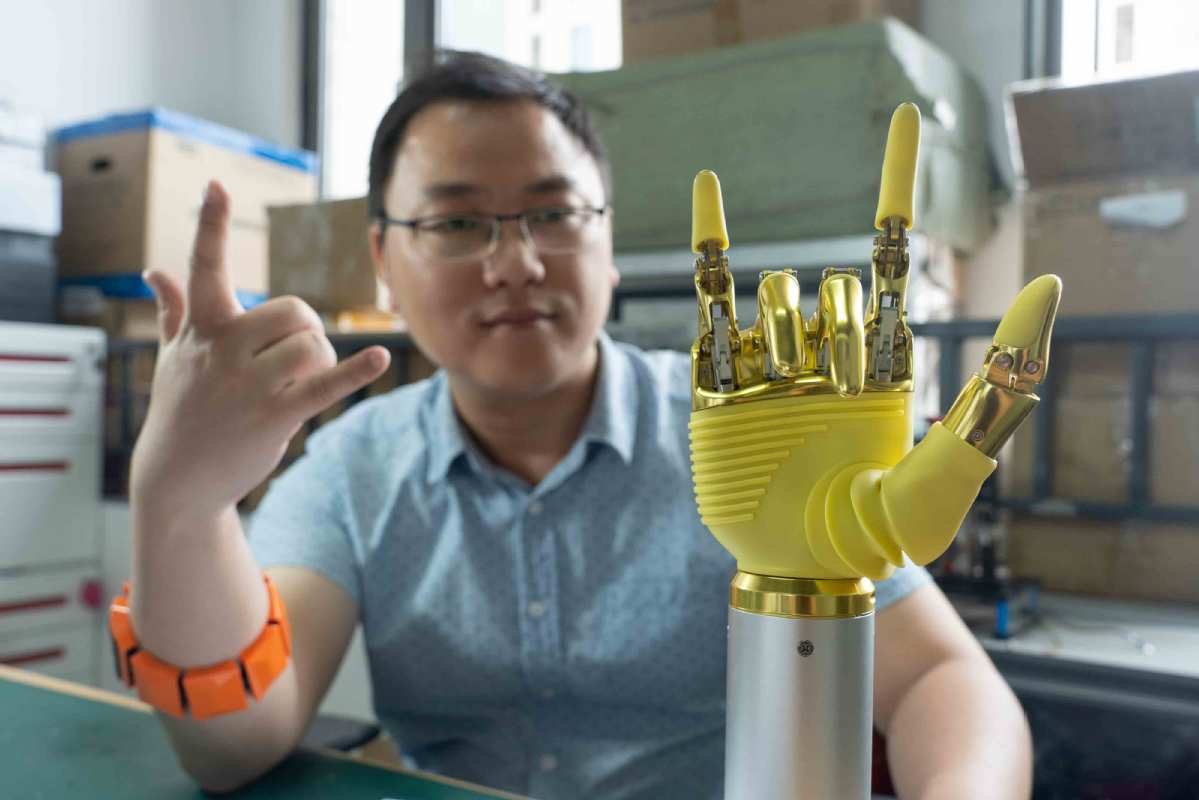Technology can be a game changer in the lives of the differently abled
China Daily Global | Updated: 2019-11-21 17:16

The recent news that the iPhone 11 has exceeded sales expectations in China shows the infatuation with consumer technology. But tech and innovation, while useful, can at times feel a little superficial.
However, for disabled people, technology is not just an addition to their lives, it can change the quality of it. Technology allows differently abled people to access and do things that they normally could not imagine doing, offering them new levels of independence.
This is a powerful message. In the United Kingdom, a marketing campaign for Amazon Echo has found success showcasing images of a blind woman using its voice recognition features to check the weather and run day-to-day errands.
The challenge disabled people face is no mean feat. In the United States, the national unemployment rate for disabled people is 8.7 percent, twice the national average, according to the US Department of Labor.
In other countries around the world the disparity is even more extreme. Jennifer Sheehy, a spokesperson and deputy assistant secretary at the Labor Department Office of Disability Employment Policy told CNET: "The low number reflects people not even looking for jobs, which comes from decades of not having access."
Beyond the technology for voice recognition and hearing aid software, which are assisting with disabled people's ability to work in an office, more innovations are in the pipeline that will expand horizons for the differently abled.
Scientists from China, the UK and the US have been developing gloves that can vocalize the hand movements of sign language, converting them into verbal communication in real time. This will be a gamechanger for deaf people seeking employment.
Likewise, the Chinese organization Cloudminds is developing a helmet with sensors and cameras that uses artificial intelligence, or AI, to help blind people navigate their environment.
The helmet information is processed through the AI, and then communicated with speech, aiding blind people and the visually impaired to recognize objects and negotiate difficult traffic.
The difficulty of languages such as braille is a testament to how hard visually impaired people must work to remain functional in society. Such technology may come as a welcome break for them.
Exoskeletons are another hugely exciting area of research for those with impaired mobility. We are now starting to see the advent of exoskeletons that allow paralyzed or partially paralyzed people to walk for the first time, such as United States power company employee Lyle Fleming, who recently took his first steps six years after being paralyzed from the waist down.
Such robotic frames are already in use, after being approved in 2012 by the US Food and Drug Administration for physical rehabilitation. This type of technology, has only so far worked for users of crutches, however future exoskeletons will no doubt provide even greater mobility.
The future is bright for differently abled people, and not just because of advancing technology. Tech is only as good as the people that use it. Disabled people demonstrate time and again the astonishing human qualities of perseverance and tenacity. As the Olympic skater and cancer survivor Scott Hamilton once said: "The only disability in life is a bad attitude".
- Facial recognition helps vagrants return home
- Charities and social groups help promote a new vision of equality
- Crisis of trust hits popularity of prenatal genetic tests
- Beijing hospital compensates parents over pregnancy checkup faults
- Tesla founder on mission to link human brain to machine interface
























